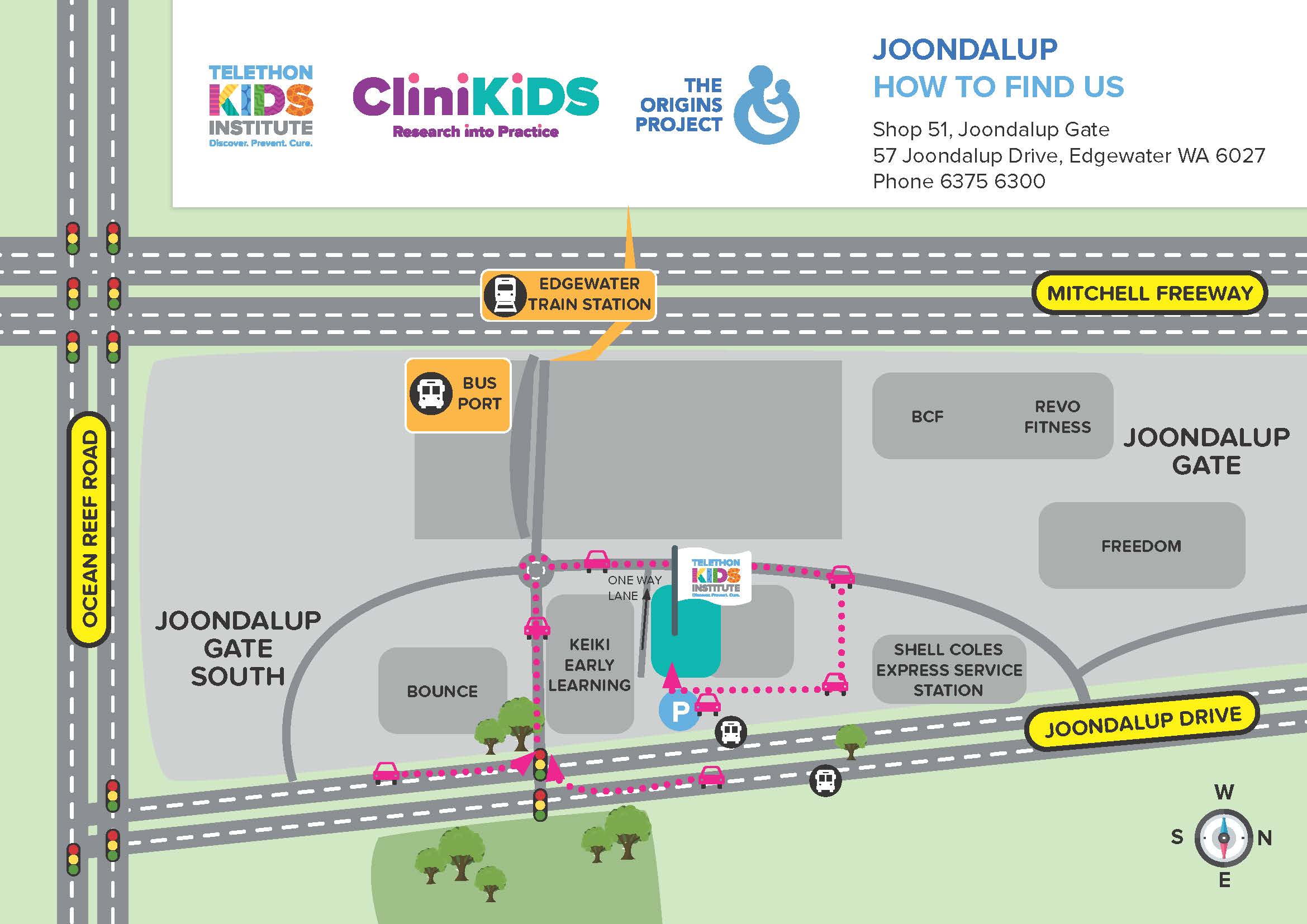Search
Showing results for "autism"
Research
Characteristics of non-Aboriginal and Aboriginal children and families with substantiated child maltreatmentTo investigate specific child and parental factors associated with increased vulnerability to substantiated child maltreatment.

News & Events
New Home for ORIGINSThe Kids Joondalup will be the new home for the ORIGINS research and data teams
Research
Neonatal complications in public and private patients: A retrospective cohort studyDespite the rates of low Apgar scores being higher in public patients, the rates of special care admission were lower.
Research
Survival of children and adolescents with intellectual disability following gastrostomy insertionWhilst gastrostomy insertion was associated with lower survival rates than children without gastrostomy, survival improved with time
Research
Risk of Hospitalizations Following Gastrostomy in Children with Intellectual DisabilityGastrostomy was associated with health benefits including reduced all-cause and epilepsy hospitalizations, but was not protective against acute LRTI
Research
Hospitalizations Following Complex Hip Surgery in Children with Intellectual Disability: A Self-Controlled Case Series AnalysisTo evaluate the associations between complex hip surgery and subsequent hospitalizations in children with intellectual disability, including a subset of children with cerebral palsy.
Research
Systematic Review and Meta-analysis: Mental Health in ChildrenThe behavioral phenotype of neurogenetic disorders associated with intellectual disability often includes psychiatric comorbidity. The objectives of this systematic review and meta-analysis were to systematically review the prevalence of psychiatric disorders and symptoms in children and adolescents
Research
Twenty years of surveillance in Rett syndrome: what does this tell us?This study aimed to describe overall survival and adult health in those with Rett syndrome.
Research
Impact of Gastrostomy Placement on Nutritional Status, Physical Health, and Parental Well-Being of Females with Rett SyndromeGastrostomy placement was associated with improvement in BMI in females with Rett syndrome, but its long-term impact on individuals and their families is unclear
Research
Adapting a measure of gross motor skills for individuals with CDKL5 deficiency disorder: A psychometric studyValidated measures capable of demonstrating meaningful interventional change in the CDKL5 deficiency disorder (CDD) are lacking. The study objective was to modify the Rett Syndrome Gross Motor Scale (RSGMS) and evaluate its psychometric properties for individuals with CDD.
